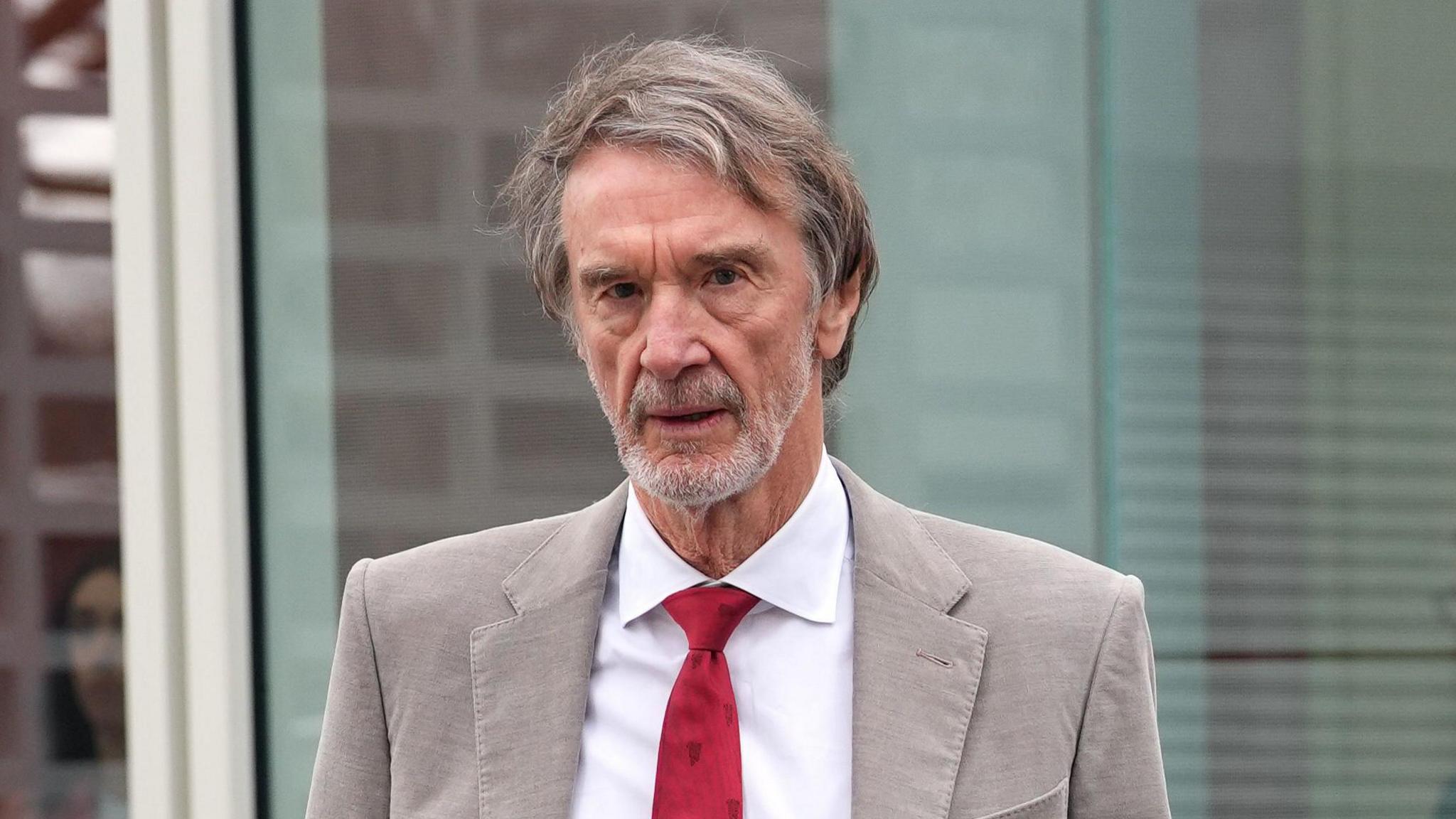Sir Jim Ratcliffe: The Man on a Mission to Restore Manchester United’s Glory
When Sir Jim Ratcliffe, billionaire founder of INEOS and now co-owner of Manchester United Football Club, invested over $1 billion for nearly a 30% stake just over a year ago, it sparked hope among fans longing for a return to glory. Yet, the path has been far from smooth. Ratcliffe’s business acumen is now being tested in one of football’s most turbulent periods.
In an exclusive BBC World Service interview with Nick Robinson, Ratcliffe opened up about the challenges he inherited, the tough decisions he’s made, and his ambitious vision, dubbed “Mission 21”—winning the Premier League by Manchester United’s 150th anniversary in 2028.
“We’re in the Middle of Change, and It’s Uncomfortable”
Reflecting on his first year as co-owner, Ratcliffe shared that progress is underway but the journey remains challenging.
"We are roughly where we thought we would be, but it’s been quite challenging because there’s a lot to do. The scale of the problems is slightly bigger than anticipated," Ratcliffe explained. He went on to say that since the legendary Sir Alex Ferguson’s retirement in 2013, the club has not performed to the level expected of it, and there is a clear need for a major period of change.
"Nobody likes change. It’s uncomfortable, and we are in the middle of that now," he admitted. He acknowledged that the process is disruptive and difficult for everyone involved, including fans and staff, but insisted that it is necessary for the club’s future.
He summarized the situation bluntly: "Manchester United has to get its house back in order before returning to winning ways. It takes time, not just flicking a switch."
Ratcliffe’s candid reflections highlight his awareness of the club’s legacy and the weight of responsibility he carries. While the decisions made so far have not always been popular, he firmly believes they are vital to restore stability.
Mission 21: Targeting Glory by 2028
Ratcliffe has set an ambitious but clear goal: winning the Premier League title by 2028, the club’s 150th anniversary. He calls this initiative “Mission 21,” a nod both to history and to the future he envisions.
"It’s good to have objectives and put a timetable on them. Look at Liverpool under Klopp; it took them several years to rebuild and then win everything in 2019, 2020, and 2021," Ratcliffe pointed out. He compared Manchester United’s rebuilding process to other successful clubs who took time to develop their squads and infrastructure before achieving top honors.
While acknowledging that a three-year target might be ambitious given the club’s current state, he insists it is the right time frame for the scale of change required. "We must measure ourselves by whether we’re doing the things we said we would to get United back to the top," he said.
Ratcliffe emphasized that this timeline is not just symbolic but a practical benchmark to keep everyone accountable: "It’s the 150th anniversary of what I think is the world’s greatest football club. It’s a fine target, and we’re here to achieve it."
No Regrets Despite Media Storms
One might expect the constant media scrutiny, fan protests, and the scale of the task to shake even the most confident investor. But Ratcliffe was resolute when asked if he has any regrets about investing in Manchester United.
"No, not at all," he said firmly. "I didn’t expect it to be easy. It’s quite tough sometimes reading the press, obviously. But in a way, I’d rather the press had to get me than the coach."
He referenced the inevitable criticism that comes with taking on such a high-profile role but emphasized that his commitment has not wavered.
"I stood out there and said, ‘I think we can make Manchester United great again.’ People are entitled to their opinions. In my view, we are on the trajectory I thought we would be on," he explained.
He acknowledged that while they did not get everything right at the outset—particularly with early management decisions—the club is now much stronger.
"We put a new management team in place. We didn’t get that all right at the beginning, obviously, but I think today we’ve got a very good management team," he said.
Ratcliffe also stressed the importance of addressing the club’s financial difficulties and improving recruitment and data analysis systems as part of the turnaround strategy.
Understanding Fans’ Frustration and Protests
Fan discontent is a reality that Ratcliffe faces head-on. He was asked about his reaction to protests before matches and the general mood among supporters who are desperate for success.
"I sympathize with the fans because Manchester United is not where it’s expected to be," he acknowledged. "We’re expected to be winning the Premier League and challenging for the Champions League. We’re not there at the moment."
He urged patience and understanding, explaining that turning around a club with deep-rooted issues takes time.
"You’ve got to get the house in order before you can get back to your winning ways," he said. He described the inherited situation, where expensive player contracts and previous financial decisions are a major drag on progress.
"For example, the players we’re buying now — Anthony, Casemiro, Antony, Holland, Sancho — these are all things from the past, inherited issues that we have to sort out."
He highlighted the complexity of financial arrangements with players like Sancho, who now plays for Chelsea, but the club still pays a significant portion of his wages and transfer costs.
"So, whether we like it or not, we have to move away from the past to build for the future," Ratcliffe concluded.
Facing a Financial Crunch Head-On
One of the most revealing parts of the interview was Ratcliffe’s frank discussion of Manchester United’s financial position upon his arrival.
"Simply put, if you spend more than you earn, that’s the road to ruin," he stated plainly.
He revealed that the club had suffered seven consecutive seasons of losses, totaling around £330 million.
"The costs of running the club in the last seven years increased by £100 million, the player wage bill increased by £100 million, but revenue only increased by £100 million. The math doesn’t work."
Ratcliffe explained that without his capital injection of $300 million and a rigorous cost-cutting program, the club would have run out of cash by the end of 2025.
"If we hadn’t done that, we’d have been bust by Christmas this year," he said.
The gravity of this financial reality helps explain some of the unpopular decisions taken during his tenure.
Ticket Prices and Cost-Cutting: The Necessary Evils
Ticket price increases have been a particularly sensitive issue, drawing protests and frustration from supporters.
"I don’t get involved in the detail of ticket pricing; that’s for the management team," Ratcliffe said.
He stressed that ticket pricing must balance fairness and affordability for the local Manchester community.
"I want tickets to be affordable for people in Manchester, especially the under-16s and older people who may not have as much money."
At the same time, he acknowledged ticket income is an important part of the club’s revenue.
"The club gets income from ticketing, merchandising, and TV rights. All are essential to fund player acquisitions and squad development."
He indicated that while modest ticket price increases are likely, the club will try to maintain stable pricing for youth fans.
On the issue of staff layoffs, Ratcliffe explained the difficult but necessary rationale.
"The club was bloated. We are cutting costs to prioritize investment in the squad," he said. "If we don’t do this, the club risks financial collapse."
Efficiency Versus Ruthlessness: A Fine Line
Critics have accused Ratcliffe of being too ruthless, pointing to cuts in ambassadorial roles, free lunches, and staff redundancies as signs of excessive cost-cutting.
Ratcliffe acknowledged the tough optics.
"I don’t enjoy reading negative press these days," he said. "But these decisions are necessary to get Manchester United back on track."
He made clear that the priority is returning the club to competitiveness.
"It would be much nicer if we didn’t have to make these tough decisions, but without them, we risk staying where we have been for the last 12 years."
Owning Up to Mistakes
Ratcliffe did not shy away from admitting errors, especially in early managerial and executive appointments.
"Backing Erik ten Hag and Dan Ashworth with significant money only to part ways shortly after were mistakes," he admitted. "I accept that, and I apologize."
Despite these missteps, he remains optimistic about the club’s current management setup.
"We have stabilized the club with a leaner workforce—about 700 people instead of 1100—and a focus on elite sports performance."
Firm Support for Erik ten Hag
Ratcliffe expressed strong confidence in manager Erik ten Hag.
"He’s an outstanding young manager, doing very well given the circumstances," Ratcliffe said.
He praised ten Hag’s discipline and expectations for the squad.
"He demands 100% commitment to winning football. That’s the culture we want."
Transfer Plans: Budget Flexibility and Strategic Sales
Looking ahead to the summer transfer window, Ratcliffe indicated the club has a budget to strengthen the squad, supplemented by potential player sales.
"The budget changes depending on sales. We want to invest wisely to improve performance."
He assured fans there would be no forced sales purely for financial reasons.
Women’s Team: Important but Secondary Focus
Addressing criticism about the relative attention given to the women’s team, Ratcliffe clarified
"My primary focus is the men’s team because that’s the major driver of revenue and success. But the women’s team is important and carries the Manchester United brand."
INEOS and Industrial Challenges
Ratcliffe also spoke about his core business, INEOS, which faces significant challenges due to high energy costs and regulatory pressures in Europe.
"INEOS is still strong but Europe is a difficult place for industry now, with energy prices five times higher than the U.S. and steep carbon taxes."
He noted the company has cut some sports sponsorships but retained ownership stakes in Formula One and sailing, emphasizing pragmatism in difficult times.
The Future of Old Trafford: A New Iconic Stadium?
Ratcliffe described government plans for southern Manchester regeneration and linked a new stadium to that vision.
"A new stadium would be the heart of the biggest regeneration project in Europe and would attract millions of fans worldwide."
He hinted that this development would be pivotal for the club’s long-term future.
Final Thoughts: Patience, Pragmatism, and Passion
Sir Jim Ratcliffe’s first year at Manchester United has been a study in balancing pragmatism with passion. His willingness to make tough, sometimes unpopular decisions is driven by a deep desire to restore the club’s historic greatness.
"If you want Manchester United winning trophies again, these hard choices are necessary."
For both INEOS and Manchester United, Ratcliffe embodies leadership forged in uncertainty but guided by a bold vision.
Manchester United’s Big Day: Europa League Final Showdown with Spurs
Today is a huge day for Manchester United and their fans. They’re up against their old rivals Tottenham Hotspur in the Europa League final in Bilbao — a game that’s about so much more than just lifting a trophy.
Winning this match means much more than glory; it secures a place in next season’s UEFA Champions League — the kind of stage every big club wants to be on. And let’s be honest, after all the upheaval off the pitch, this is a golden chance to prove things are moving in the right direction.
Can this be the moment that finally rallies the team, the fans, and the club behind Ratcliffe’s vision? It’s not just about today’s 90 minutes; it’s about momentum, belief, and taking a crucial step toward that “Mission 21” goal.
Every fan will be holding their breath, hoping this final is the first trophy in a new chapter — a signal that Manchester United’s long climb back to the top is truly underway.
After all, football is a game of hope, and today, hope might just be on United’s side.
For more exclusive insights on global leadership and pressing international issues, don’t miss our in-depth interview with former U.S. President Joe Biden, where he speaks candidly about democracy, NATO, Ukraine, and Trump. Read it here: Joe Biden Speaks Candidly on Democracy, NATO, Ukraine, and Trump in Exclusive BBC Interview.












